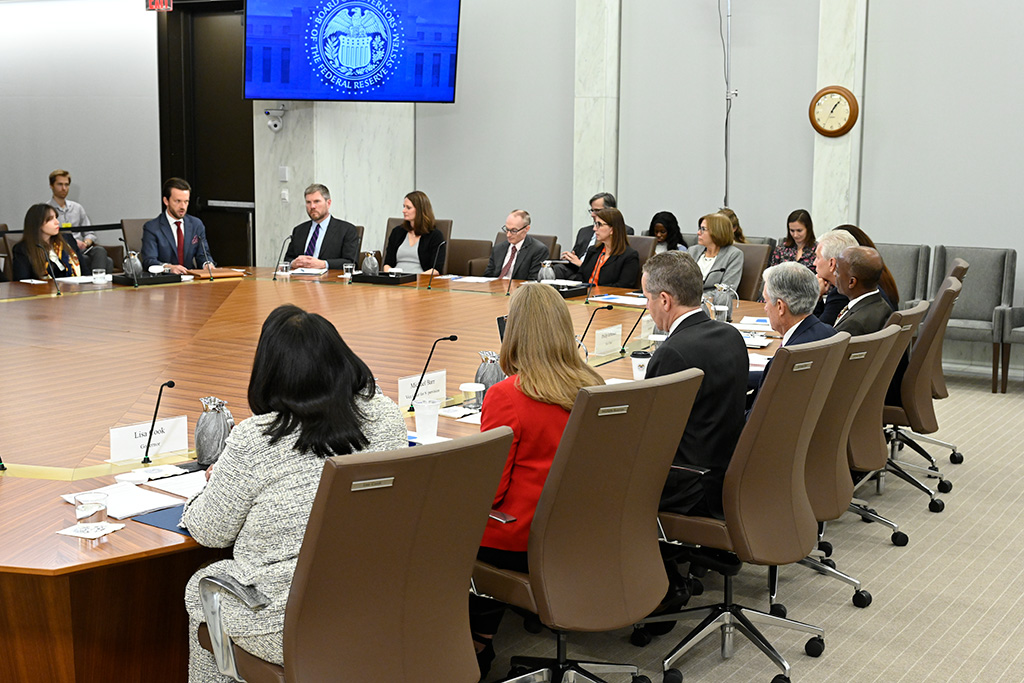Articles
Jo Freeman: There’s Plenty To Do at the RNC – If You Have the Right Credentials
by Jo Freeman
Every national nominating convention has plenty of auxiliary events, some authorized, some not. Getting space can be a challenge; getting the word out even more so. But they do it nonetheless. Press were given a RNC 2024 Master Event Calendar, which was updated a few days later. Events began on Sunday and ended on Thursday. The actual convention sessions were just one item on the list. The calendar said if an event was Open or Closed to press, and also whom to contact to register. I’m going to describe some of the events, including a couple I went to, and a couple I was turned away from.
Since my focus is on women, I obviously wanted to go to those events – if I could.
The National Federation of Republican Women is the largest grassroots Republican women's organization in the country with hundreds of clubs. Founded in 1938, its members made the phone calls and knocked on the doors that elected Republican candidates for decades. It’s Tuesday luncheon featured Arkansas Governor Sarah Sanders. The Master Calendar said it was SOLD OUT and they wouldn’t let me in. I was able to get into their lounge at the Fiserv Forum Wednesday evening, where I was repeatedly asked if I was a member, and if not, would I join. “I’m press,” I said. “I can’t join anything partisan.” I then said: “What brings you here?” On hearing that, finding anyone willing to chat with me was like pulling teeth.
Moms for Liberty met in a concert hall that afternoon. I had pre-registered, and I got in. From high in a balcony seat I listened to several people talk about the evils of transgenderism. It’s webpage says WE BELIEVE Power Belongs to the People. Sound Familiar? With a focus is on parental rights, it wants to “STOP WOKE indoctrination.”
Tuesday I went to “The New Mavericks” reception co-hosted by the Black Republican Mayors Association and the Georgia Republican Party. They honored Sen. Tim Scott, four Congressmen and two Georgia delegates – all male. There was only one mayor on stage, from Aurora, IL. The chair of the Georgia Republican Party was the one white man on the stage. At that event, women served; they didn’t speak. The RNC reported that 55 delegates to the 2024 convention are Black, up from 18 in 2016.
I missed the Independent Women’s Forum toast to “Women Who Make Our Country Great” because I went to Convention Fest: The Official Delegate Experience, which was held in the streets outside the Fiserve Forum and Baird Hall as well as some space inside Baird. To get to that one you not only needed a credential of some sort, but a USSS pass (which I have).
Concerned Women for America parked its pink bus across from the Baird Center the week before the RNC. No one was home. When Convention Fest opened on Tuesday afternoon, they set up a pink tent, from which its leaders preached to whomever passed by. It calls itself “the nation’s largest public policy women’s organization” but its focus is evangelical Christian. The slogan on the side of its pink bus captures this emphasis: “She Prays, She Votes.” A prayer precedes each sermon.
 Board of Governors of the Federal Reserve System Question: Design and the Gender Gap in Financial Literacy
Board of Governors of the Federal Reserve System Question: Design and the Gender Gap in Financial Literacy
"Results from the 2021 SHED show substantial gender differences in the responses to the financial literacy questions, consistent with prior studies. We first present results for the half of respondents who received an explicit "don't know" answer choice. A smaller share of women answered each financial literacy question correctly. While women and men were similarly likely to select an incorrect answer, women were much more likely to select "don't know." For example, 63 percent of women selected "don't know" for the diversification question – 20 percentage points higher than the share of men who did so." more »
 Ferida Wolff's Backyard: Shifting Seasons: We Need to Remember That We Are Strong Underneath, That Things Change and That the World is Flexible.
Ferida Wolff's Backyard: Shifting Seasons: We Need to Remember That We Are Strong Underneath, That Things Change and That the World is Flexible.
Ferida's Backyard: "As our communities become more urbanized, the natural features around us tend to get pushed into the background and often go unnoticed. In “Ferida’s Backyard,” I look at the details of nature locally, from a neighborhood perspective, frequently from a backyard vantage point. It excites me to share what I see. An awareness of the natural connection can beautifully enhance our lives. "I was moved when I looked at the leafless tree. It seemed to be reaching up to embrace the sky. It will be like that through the winter months, allowing us to see its inner strength before it covers its bareness with beautiful greenery in Spring." more »
 Source: National Center for Immunization and Respiratory Diseases; CDC Continues to Track the Growth of JN.1 December 22, 2023
Source: National Center for Immunization and Respiratory Diseases; CDC Continues to Track the Growth of JN.1 December 22, 2023
"JN.1 continues to increase in proportion. CDC has been tracking JN.1 for months, since it first split from its parent, BA.2.86. JN.1 is similar to BA.2.86 but has an additional mutation (L455S) in the spike protein. JN.1 continues to cause an increasing share of infections and is now the most widely circulating variant in the United States. For the two weeks ending on December 23, 2023, JN.1 is expected to account for 39-50% of all SARS-CoV-2 variants. That’s an increase from the projected prevalence two weeks ago of 15-29%. We’re also seeing an increasing share of infections caused by JN.1 in travelers, wastewater, and most regions around the globe. Help reduce the spread of COVID-19. Improving your indoor air is one of the best ways to prevent spread. This can be as simple as using a portable air cleaner or opening windows (for those with pleasant winter weather). And if your home thermostat offers a FAN option, turn it from AUTO to ON when you have visitors to keep air running continuously. Learn more about other ways to help reduce spread, including testing for COVID-19, wearing masks, and increasing space and distancing."
more »
 Rose Madeline Mula: If You Can't Stand the Heat
Rose Madeline Mula: If You Can't Stand the Heat
Rose Madeline Mula Writes: "It was with considerable trepidation, therefore, that I entered the kitchen of my hostess, the legendary actress, Joan Fontaine, one long-ago Thanksgiving morning, to offer my assistance. Acting was not Miss Fontaine's only talent. Not by a long shot. She was also a hole-in-one golfer, a prize-winning fisherwoman, a hot air balloonist, an accomplished horsewoman, and a pilot. 'When you've had as many husbands as I've had, Darling,' she'd quips, 'you learn all their hobbies.' And one hobby all hubbies shared in common was a love of good food. No problem. Joan was also a gourmet cook who studied at the Cordon Bleu in Paris. No wonder I was intimidated that day. more »






